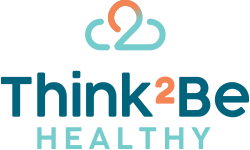“Are you OK, Mummy? You look sad,” observes 3-year-old Amelie as she climbs onto her mum’s lap.
Her mum, Monique, does indeed look sad as the tears falling slowly down her cheeks attest. But Monique doesn’t want to worry her daughter so she quickly rearranges her features into a rather fake smile and, in an artificially cheerful voice, declares, “I’m not sad, sweetheart. I’m absolutely fine!”
We’ve all been there. But is there a better way to handle these situations? One that supports your child’s emotional development and potentially even equips them to become a future leader?
Emotional leadership
Emotional awareness is an important skill. The Harvard Business School defines emotional intelligence as the ability to:
- Understand and manage your own emotions
- Recognise and influence the emotions of those around you.
It’s a vital interpersonal skill that 71% of employers rate more highly than technical skills when assessing job candidates. That’s because emotionally intelligent leaders are better able to:
- Successfully coach teams
- Manage stress
- Deliver feedback
- Collaborate with others
- Stay calm under pressure
- Resolve conflict
- Respond to colleagues with empathy.
Supporting your toddler’s emotional learning
Life provides plenty of opportunities for emotional learning, provided you’re willing to be authentic.
In our example above, Amelie has accurately identified her mother’s sadness. But then she’s been told she got it wrong. Her mum is, allegedly, fine. Yet she’s clearly not.
We can all sympathise with Monique here. But perhaps, she could have handled it differently. Perhaps she could have said, “You’re right, darling, I am a bit sad. I’m really tired today and everything feels harder than usual. Thanks for noticing, sweetie.”
That would have been an honest conversation. And it would also have supported Amelie’s emotional development by affirming that her observations were correct.
Sometimes, you might find your child hasn’t quite identified the right emotion. In those situations, you might say something like, “I don’t think Bluey’s angry. Maybe she feels frustrated or confused.”
Sibling conflict, too, can provide a chance to explore emotions. When everyone has calmed down, you can ask questions like, “What do you think she was feeling?” or “Why do you think she did that?”
And, of course, you can model emotional awareness yourself:
- “I’m feeling frustrated because your bedroom is still messy even though I asked you to clean up.”
- “I’m so proud of you for sleeping in your own bed. I know that’s been hard for you.”
- “I’m excited about our trip to the beach. It’ll be lovely to spend time together.”
- “I’m sorry I snapped at you. I’m really tired today and it’s making me short-tempered.”
Tools for learning about emotions
Children will experience many different feelings and it’s not always easy to find the right name for each one. Emotion cards can be a helpful tool. Typically, each set will include several images, each one with a different facial expression, labelled underneath.
You can lay the cards on the table and ask your child how a certain situation made them feel. You could do this after a tough day at school or a fight with a friend, for example. It can be a great basis for discussions.
Download some feelings cards here
The ripple effect of emotional awareness
Have you heard the phrase, ‘The dog kicks the cat’? It describes how we all tend to take our frustrations out on people weaker than us – like subordinates at work or younger siblings. One person’s bad day quickly spreads to everyone else.
Emotionally aware people are the antidote to that negative cycle. They’re good at noticing others and drawing out their strengths. And they’re better able to manage their own feelings, integrating their head and heart so they can live authentic lives.
The world needs more of that! Cultivating emotional intelligence in your children helps them grow into mature, capable adults who exert a positive influence on others.
How can we help?
At Think2Be Healthy, we love helping children develop a resilient mindset. If you’d like to receive more tips, please subscribe to our newsletter.
Disclaimer
All information is general and not intended as a substitute for professional advice.
References
- Harvard Business School, Why emotional intelligence is important in leadership, https://online.hbs.edu/blog/post/emotional-intelligence-in-leadership, [Accessed 16 April 2024]




